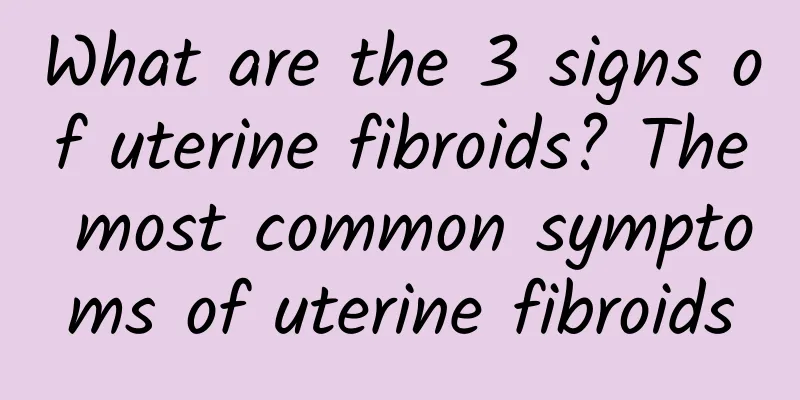Can I have abortion with medication if I have uterine fibroids? What are the consequences?

|
Can I have abortion with medicine if I am pregnant with uterine fibroids? What are the consequences? 1. Uterine fibroids are the most common benign tumors of the female reproductive organs, also known as uterine leiomyoma. They are common in women aged 30 to 50 and rare in women under 20. The vast majority of uterine fibroids are benign. However, since uterine fibroids tend to occur multiple times, in women of childbearing age, fibroids may gradually increase in size and number as they age. Many women only discover uterine fibroids during gynecological examinations after pregnancy. 2. The rate of pregnancy abnormalities such as miscarriage caused by uterine fibroids is significantly higher than that of the normal population. Fibroids affect the implantation of fertilized eggs and the development of the placenta, leading to placenta previa, placental abruption and placental adhesion. If fibroids restrict the movement of the fetus in the uterus, the fetal position will be abnormal. Therefore, many women who find uterine fibroids in the early stages of pregnancy will choose to have an abortion or medical abortion. 3. Pregnant women with uterine fibroids are advised not to have medical abortions. The drugs can cause the uterine decidua to degenerate and necrotize, the cervix to soften, and the uterus to contract, forcing the embryo to be expelled from the body. In this process, the patient will feel pain in the lower abdomen due to uterine contraction. At the same time, the use of medical abortion has a certain impact on the treatment of uterine fibroids. Moreover, medical abortion is not clean, and you have to go to the hospital for a curettage. 4. Pregnant women with uterine fibroids who want to have an abortion should do so under the professional guidance of a doctor. The best candidates for medical abortion are those who are disease-free and conceive within 49 days of amenorrhea. Pregnant women with uterine fibroids should not have medical abortions, as taking medicine may aggravate the condition of uterine fibroids. If you do not want to have a fetus, you should have an artificial abortion under the doctor's advice, which can also treat uterine fibroids. |
<<: How to maintain after uterine myomectomy
>>: When can ectopic pregnancy be detected?
Recommend
What are the dangers of pelvic peritonitis?
Many women in life will suffer from pelvic perito...
The most common symptoms of dysmenorrhea in life
Among the many gynecological diseases in women, d...
What should I do if I feel itchy down there? It needs to be treated promptly and effectively
If you have severe itching down there, you should...
There are 2 obvious symptoms of pelvic inflammatory disease
Pelvic inflammatory disease does not have two obv...
What causes cervicitis?
The causes of cervicitis may be related to a vari...
How much does it cost to see a doctor for early stage endometriosis?
As our living standards continue to improve, our ...
Does pregnancy with cervical erosion affect the fetus? It is better to know these common knowledge about cervical erosion as early as possible.
Pregnancy with cervical erosion usually has no ef...
What is vaginitis?
What is vaginitis? This is a concern for everyone...
What serious symptoms can irregular menstruation cause?
Many women think that irregular menstruation is a...
4 major causes of adnexitis in unmarried women
Most people think that adnexitis is caused by inf...
What can be added to chicken's gizzard to treat uterine fibroids? Chicken's gizzard can treat uterine fibroids
What can be added to chicken's gizzard to tre...
How to differentiate miscarriage
No one wants to see an unexpected miscarriage aft...
Abdominal pain and loose stool after abortion
Abdominal pain and loose stools after abortion ma...
Corpus luteum destruction is effective in treating ectopic pregnancy
Corpus luteum ablation is an effective method for...
White hyperplasia appears on the vulvar skin. Beware of the symptoms of vulvar leukoplakia
Vulvar leukoplakia is also known as vulvar leukop...









